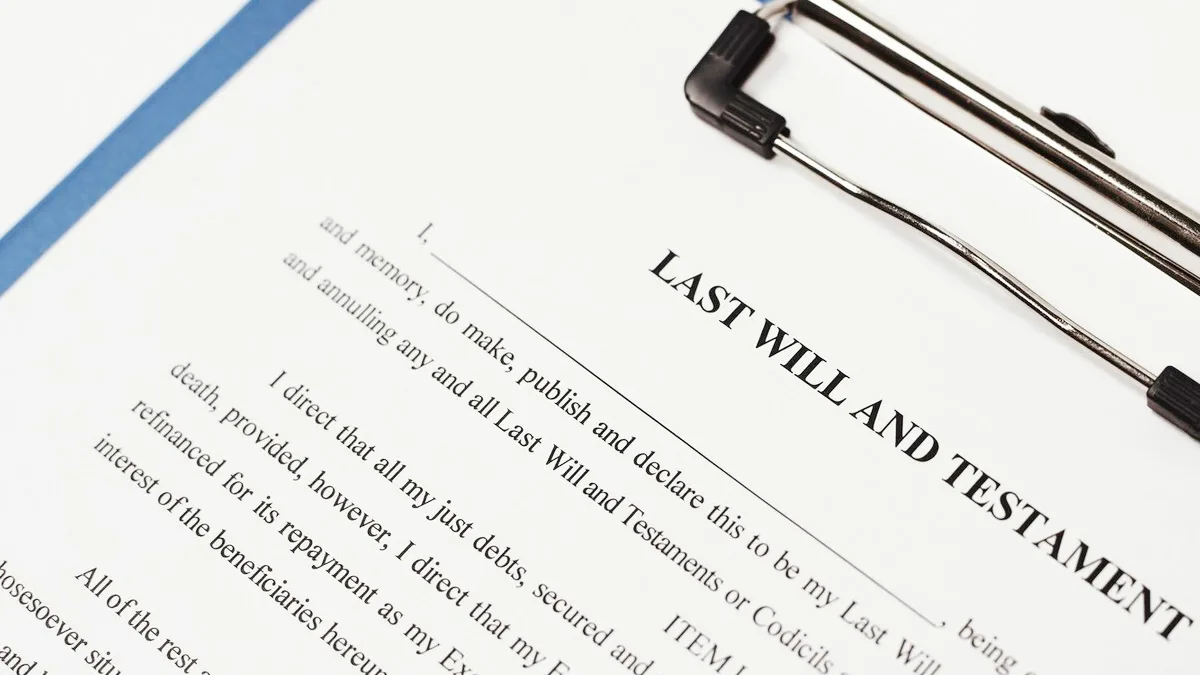All too often, a person dies without a will. Let’s face it, it’s not fun to think about dying. No matter what your age, it’s easy to put off formal planning for all the things that will need to happen after your death. But not making a will can make things so much harder for the family you leave behind. This article will explain the law, provide some definitions, and describe what happens in some of the more common scenarios.
When someone (the decedent) dies without a will, we look to the way property is owned. Jointly owned property (often houses and cars) automatically passes to the joint owner. Property that has a designated beneficiary (like life insurance and retirement accounts) goes to the designated person. Survivorship property (such as bank accounts in joint names) automatically goes to the survivor. None of these are considered as part of the probate estate.
For property the decedent owned in their sole name, we look to the law of intestate succession. This applies to both real property (houses and land) and personal property (bank accounts, furnishings, vehicles, business interests, stock). Intestate succession leads to different results depending on who survives the decedent. The technical term for those survivors is heirs-at-law.
Let’s look at an example from Kentucky:
Spouse and Children Survive
In Kentucky, if a person is survived by a spouse and children, the spouse receives the first $30,000 of personal property. Then, any creditors are paid, and the spouse receives one-half of the remaining personal property and one-half of the decedent’s real property. The surviving children divide the remaining one-half of the assets. The share for any child under 18 is held by a guardian subject to the court’s approval for any expenditures. On their 18th birthday, the child gains control of the assets, regardless of the amount and of their maturity level.
If you’ve known any 18-year-olds (or remember being one), you don’t need me to tell you that that could be a real problem in many cases.
Only Children Survive
If a person is survived by children but no spouse (e.g., a divorced or widowed person), the children divide the first $30,000 of personal property. After creditors are paid, the children divide the remaining property, real and personal. The guardianship rules for children under 18 apply in this case as well.
Spouse But No Children Survive
If a person is survived by a spouse but no children, the spouse receives the first $30,000 of personal property. After creditors are paid, the spouse receives one half of the remaining personal property and one-half of the real property. The remaining assets pass to the decedent’s parents if they are alive.
If the parents are not alive, the remaining assets pass to the decedent’s siblings per stirpes. Per stirpes means that if a sibling of the decedent has died, but has children, the children of the deceased sibling divide that sibling’s share. It can get pretty complicated when there are pre-deceased persons in more than one generation, as you can imagine. There are even special rules for half-siblings.
In this scenario, a spouse may be in for the unwelcome surprise of sharing an inheritance with their in-laws or other family members they might not have chosen.
No Spouse or Children: No Small Estate Provision
In all of the scenarios above, the $30,000 spousal or children’s exemption is Kentucky’s version of the small-estate provisions that some other states have. If the person’s estate is less than $30,000 (after the burial expenses), the survivors can file what’s called a petition to dispense with administration and avoid the need for a full-blown probate proceeding.
However, one of the sad facts of Kentucky probate occurs when a minor or young adult child dies without a spouse or children. Under Kentucky law, if a person is survived only by his or her parents, there is no exemption like the one that children and spouses get in the other scenarios. Creditors are paid first and then the parents receive all the remaining property. If the person had any assets whatsoever, a full-blown probate is required. My experience is that this extracts a painful emotional toll on parents who have lost a child. The Kentucky General Assembly could and should fix this.
Conclusion
Having a will makes things much easier for your family. It specifies exactly where you want your assets to go after your death, rather than a “one-size fits all” distribution provided by the law if you die without a will. For parents of minor children, having a will is so important that having one drawn up should be at the top of your to-do list. Even without minor children, having a will could prevent distributions of your assets to family members that you might not have chosen as your heirs. And, if you’re fortunate to have a large estate, you can leave much more to your family if you do some estate tax planning with a skilled attorney.









Leave a Reply